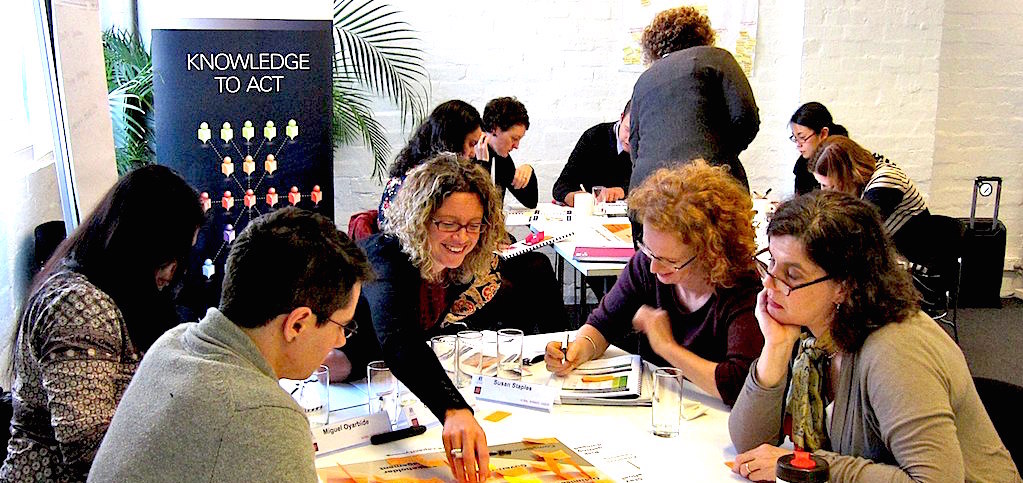You can learn how to create shared value for your organisation and your stakeholders
Since Harvard management scholars Michael Porter and Mark Kramer defined the concept of shared value in 2011, some have suggested that corporate social responsibility (CSR) has been superseded by shared value – that shared value is better than CSR – or that CSR is dead.
Shared value is a business strategy that delivers an improved profit formula or new market opportunity by addressing societal challenges. For a project to be a true shared value initiative it needs to satisfy four criteria. It must be innovative. It must address a societal problem. It must do so at scale, and it must do so as a business proposition.
CSR is a concept that traces its origins back more than 100 years to debates about the purpose of business and the responsibilities that arise because of its purpose. Does business have a responsibility only to its owners and to the laws of the land, or does it have a broader responsivity to society?
Business owners and managers today readily accept that business has a broader set of responsibilities. Modern CSR is the willingness of an organisation to incorporate social and environmental considerations in its decision-making and be accountable for the impacts of its decisions and activities on society and the environment (ISO 26000).
What is the connection between shared value and CSR?
The connection between shared value and CSR is clear insofar as it requires business to respond to social problems. CSR also shares an innovation agenda that has been widely discussed, for example in the book Innovative CSR – from Risk Management to Value Creation, by Celine Louche (2010).
CSR is also a necessary foundation for creating enduring shared value. It is difficult to imagine a company being credible in a shared value project if it does not already take care to avoid and reduce any negative social or environmental impacts of its business.
However, it is less clear that good CSR requires impacts at scale. Small is OK when it comes to good CSR. CSR is also silent when it comes to making money out of good social programs, although there is a vast body of evidence that socially responsible companies tend to outperform markets (largely because they are better managed). From a CSR perspective it is OK for a social initiative to be uncommercial, as long as there is a positive social impact. When good CSR generates revenue, we simply say that CSR is being expressed through a company’s products and services. We say it’s embedded.
Examples of CSR embedded into products and services are often called shared value, even if they were not designed that way. For example, the much-praised M-PESA project in Africa that brings financial services to the unbanked was launched in 2007, years before the shared value idea was published.
The differences between shared value and CSR are therefore in degrees of emphasis on certain aspects, not in substance. CSR requires us to clean up our mess and strive for positive social and environmental impacts from our day-to-day business. Shared value requires us to recognise the need for new business models, rethink the conventional understanding of value, and reshape the traditional corporate response to societal issues to seek scale and commercial impact.
Being effective in shared value and CSR
ACCSR sees shared value as an important new evolution of CSR, one of several new effective approaches in the CSR and sustainability landscape of the past five years (such as integrated reporting, circular economy, and natural capital approaches). Shared value won’t be the answer to every social problem or every business problem but it will make a meaningful impact, towards a more sustainable, fairer, and prosperous world.
That’s why we joined the Shard Value Project early in 2015. We also teamed up last with our long standing South African partner, Incite Sustainability to pilot a shared value two-day short course, which we are now bringing to Australia for a second time.
The course, Unlocking shared value, will help:
- Deepen your understanding of sustainability and the shifting competitive landscape
- Learn and apply strategy tools that will help you position your company’s response
- Identify shared value innovations for your business using Incite’s shared value Innovator™
process - Learn and apply materiality analysis to your shared value strategy
- Explore and troubleshoot the five steps needed to build an effective shared value culture
across your organisation.
The course will be led by Jonathan Hanks, an international sustainability expert who has been centrally involved in the development of Integrated Reporting, the ISO 26000 standard on Social Responsibility, shared value throughout Africa, and provides expertise to the Global Reporting Initiative.
You can learn how to create a true shared value project at ACCSR’s two-day international short course Unlocking Shared Value, in Sydney on 7-8 September 2016. It will be hosted by IAG and is co-convened by ACCSR and the Shared Value Project.
